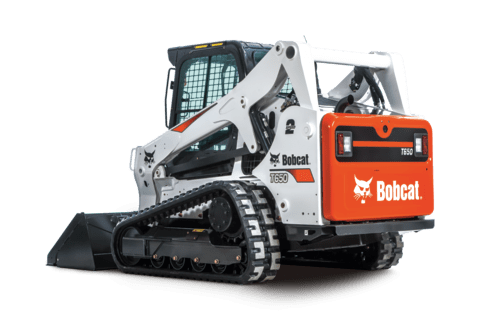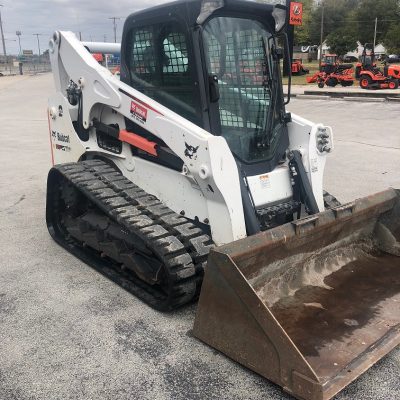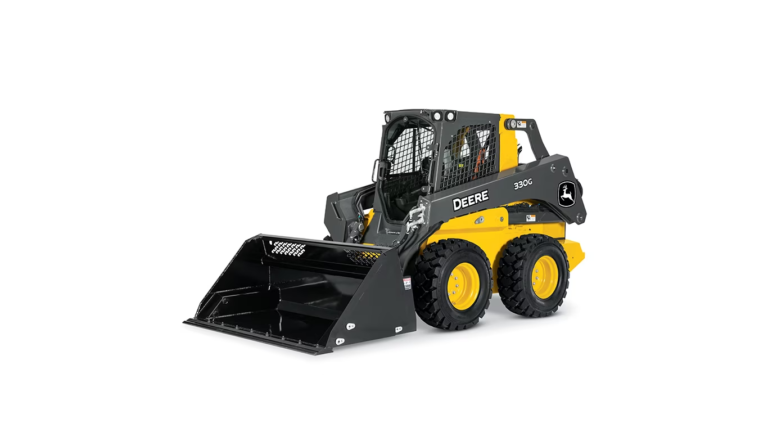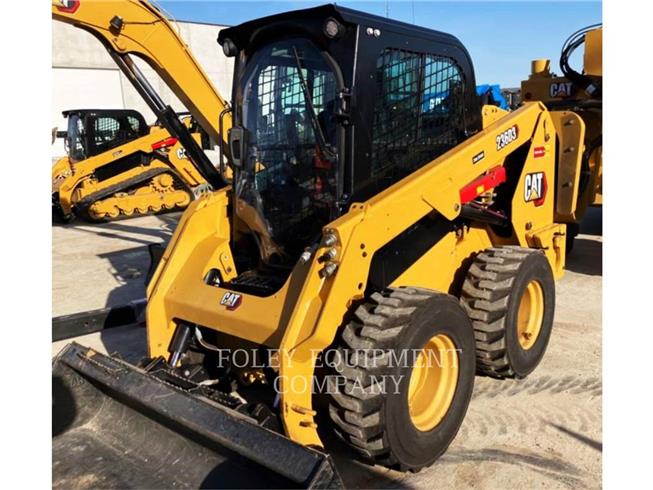Buy Used Skid Steer: Top Tips for Smart Investments
Buying a used skid steer can save you money while providing reliable performance for your projects. Focus on condition, maintenance history, and brand reputation to make an informed choice.
Skid steers are versatile machines that excel in various tasks, from landscaping to construction. Purchasing a used skid steer offers significant cost savings compared to new models. Many used options still have plenty of life left, making them practical for both small and large jobs.
It’s essential to inspect the machine thoroughly and review its service records. This ensures you choose a skid steer that meets your needs without unexpected expenses. Whether you need it for lifting, digging, or grading, a used skid steer can be a valuable addition to your equipment fleet.
Introduction To Skid Steers
Skid steers are versatile machines used for various tasks. They excel in tight spaces and can lift heavy loads. Many industries rely on them for construction, landscaping, and agriculture.
Popularity In Construction
Skid steers have gained immense popularity in the construction industry. Their compact size allows them to navigate narrow sites easily. Here are some reasons for their popularity:
- Versatility: They can perform multiple tasks.
- Efficiency: Quick and effective operation saves time.
- Cost-Effective: Affordable compared to larger machinery.
Common applications include:
- Site preparation
- Material handling
- Excavation
Advantages Of Pre-owned Equipment
Buying used skid steers offers many benefits. Here are some key advantages:
| Advantage | Description |
|---|---|
| Cost Savings | Used skid steers are often significantly cheaper. |
| Immediate Availability | Used machines are ready for quick purchase. |
| Reduced Depreciation | Used equipment has already depreciated in value. |
| Proven Performance | Established machines have a track record of reliability. |
Consider these benefits to maximize your investment. Used skid steers can offer excellent value without compromising quality.

Credit: www.bobcat.com
Evaluating Your Needs
Before purchasing a used skid steer, evaluate your needs. Understanding your project requirements is crucial. It helps in selecting the right equipment. Consider size and power for optimal performance.
Assessing Project Requirements
Identify the tasks you will perform with the skid steer. Here are some key factors:
- Type of material to handle
- Terrain and environment
- Duration of use
- Budget constraints
Each project has different demands. Make a list of specific needs. This will guide your decision-making process.
Size And Power Considerations
Choosing the right size and power is vital. Here are some points to consider:
| Size | Best For | Power Level |
|---|---|---|
| Compact | Small spaces | Low to medium power |
| Standard | General tasks | Medium power |
| Large | Heavy-duty jobs | High power |
Choose a size that fits your project area. Ensure the power level matches your workload.
Evaluate if you need attachments. Attachments enhance versatility. Common attachments include:
- Buckets
- Forks
- Brush cutters
Selecting the right skid steer makes all the difference. It improves efficiency and safety on the job site.
Setting A Budget
Buying a used skid steer requires careful budget planning. A solid budget ensures you invest wisely. Understand your financial limits before making any decisions.
Allocating Funds Wisely
Start by determining how much you can spend. Consider these key areas:
- Purchase Price: Decide on a maximum price for the skid steer.
- Financing Options: Explore loans or payment plans.
- Insurance: Factor in the cost of insurance coverage.
- Maintenance: Set aside funds for future repairs and upkeep.
Here’s a simple budget breakdown:
| Expense Type | Estimated Cost |
|---|---|
| Purchase Price | $20,000 |
| Insurance | $1,500 |
| Maintenance | $500 |
| Financing Costs | $1,000 |
Hidden Costs To Watch Out For
Many buyers overlook extra costs. Be aware of these hidden expenses:
- Transportation Fees: Budget for shipping the skid steer.
- Inspection Costs: Pay for a professional inspection.
- Registration Fees: Include costs to register the skid steer.
- Accessories: Consider attachments and upgrades.
Always account for unexpected costs. A small cushion in your budget helps avoid surprises. Stay informed to make the best purchase.
Where To Find Used Skid Steers
Finding the right used skid steer can be simple. Knowing where to look helps you make a smart choice. Here are some top places to search.
Dealerships Vs. Private Sellers
Buying from a dealership has its perks:
- Trustworthiness: Dealerships often offer warranties.
- Selection: They usually have a variety of models.
- Expertise: Sales staff can answer your questions.
Private sellers can also be a good option:
- Lower Prices: Private sales may cost less.
- Negotiation: You can often negotiate the price.
- Unique Finds: You might discover rare models.
Decide based on your needs. Dealerships offer security, while private sellers can save you money.
Online Platforms And Auctions
The internet is a treasure trove for used skid steers. Popular online platforms include:
| Platform | Features |
|---|---|
| eBay | Wide selection, bidding options |
| Facebook Marketplace | Local sellers, easy communication |
| Craigslist | Variety of listings, direct contact |
Auction sites also provide great opportunities:
- Competitive Prices: Bidding can lower costs.
- Quick Sales: Auctions often end quickly.
- Detailed Listings: You can see many options in one place.
Always read reviews and check seller ratings before buying online. Trust is key for a good deal.
Inspecting Before Purchasing
Buying a used skid steer requires careful inspection. An informed choice saves money and avoids future headaches. Focus on key mechanical checks and operational assessments. These steps ensure your investment is sound.
Key Mechanical Checks
Start with a thorough inspection of the skid steer’s components. Check the following:
- Engine: Look for leaks and unusual noises.
- Hydraulics: Inspect hoses for cracks or wear.
- Tires: Examine for even wear and proper pressure.
- Frame: Check for any cracks or signs of rust.
- Controls: Ensure all controls function smoothly.
Keep a checklist handy. This will help you remember what to inspect.
Test Drive And Operational Assessment
A test drive reveals a lot about the skid steer’s performance. Pay attention to the following:
- Start the engine. Listen for any unusual sounds.
- Test the steering. It should respond quickly.
- Operate the hydraulic arms. They should lift smoothly.
- Check the brakes. Ensure they stop the machine effectively.
- Assess visibility. Ensure all controls are easy to see.
Take notes during the test drive. This will help you compare different models.
| Component | What to Check | Signs of Issues |
|---|---|---|
| Engine | Leaks, noises | Oil spots, knocking sound |
| Hydraulics | Hoses, leaks | Wet spots, weak lift |
| Tires | Wear, pressure | Uneven tread, flat |
| Frame | Cracks, rust | Visible cracks, flaking |
| Controls | Functionality | Stuck or unresponsive |
Performing these checks ensures you choose a reliable skid steer. A careful assessment leads to better performance and longevity.
Understanding The Machine’s History
Knowing the history of a used skid steer is vital. It helps you make an informed decision. This section focuses on key aspects to consider.
Maintenance Records
Checking the maintenance records is essential. These records show how well the machine was cared for.
Key points to look for:
- Regular oil changes
- Filter replacements
- Any major repairs
- Service intervals
Good maintenance extends the life of the skid steer. A well-maintained machine can save you money.
Previous Usage And Ownership
Understanding previous usage helps assess the skid steer’s condition. Ask about the number of previous owners.
Consider these factors:
- Type of work performed
- Hours of operation
- Environmental conditions
- Type of attachments used
Machines used for light work generally last longer. Heavy-duty tasks can lead to more wear and tear.
Gathering this information helps you choose wisely. A skid steer with a good history is a valuable investment.
Negotiation Strategies
Negotiating the price of a used skid steer is crucial. Smart strategies can save you money. Understanding market value helps you negotiate better. Let’s explore key aspects of negotiation.
Determining Market Value
Knowing the market value of a used skid steer is vital. This helps you set a fair price. Here are some methods to determine market value:
- Research Online: Check websites like Craigslist, eBay, or specialized equipment sites.
- Local Dealers: Visit dealers to compare prices.
- Industry Reports: Use reports for average prices and trends.
Consider the following factors:
| Factor | Impact on Value |
|---|---|
| Age | Older models usually cost less. |
| Condition | Well-maintained machines fetch higher prices. |
| Hours Used | Lower hours indicate less wear and tear. |
| Brand | Popular brands often have better resale value. |
Tips For Price Negotiation
Negotiating effectively can lead to significant savings. Use these tips to get the best deal:
- Start Low: Begin with a lower offer than your target price.
- Be Confident: Show that you know the market value.
- Highlight Flaws: Point out any issues with the skid steer.
- Be Patient: Don’t rush. Let the seller consider your offer.
- Have Alternatives: Mention other options to strengthen your position.
Each step builds your negotiating power. Remember, preparation is key. Stay firm and respectful throughout the process.
Post-purchase Considerations
Buying a used skid steer is exciting. However, some important steps follow after the purchase. Proper transport, maintenance, and upkeep ensure your investment lasts.
Transporting Your Skid Steer
Transporting your skid steer requires careful planning. Follow these steps to ensure safe transport:
- Check local laws regarding transport.
- Use a reliable trailer designed for heavy loads.
- Secure the skid steer with heavy-duty straps.
- Ensure the weight distribution is balanced.
Remember these tips:
- Inspect the trailer before loading.
- Drive slowly, especially on rough roads.
- Use ramps that can handle the skid steer’s weight.
Proper transport prevents damage to your skid steer and keeps you safe.
Maintenance Plan And Upkeep
A good maintenance plan extends the life of your skid steer. Regular checks help identify issues early. Follow this simple maintenance schedule:
| Maintenance Task | Frequency |
|---|---|
| Check fluid levels | Weekly |
| Inspect tires and tracks | Monthly |
| Change oil and filters | Every 200 hours |
| Inspect hydraulic hoses | Every 500 hours |
Follow these basic upkeep tips:
- Keep the skid steer clean.
- Store it in a sheltered area.
- Address minor issues before they become major problems.
Consistent maintenance helps maintain performance and safety.
Common Pitfalls To Avoid
Buying a used skid steer can save money. Yet, it comes with risks. Avoiding common pitfalls can lead to better choices. Pay attention to these key areas.
Overlooking Wear And Tear
Inspecting the condition of a used skid steer is crucial. Look for signs of wear and tear. This can indicate future problems.
- Check the tires for uneven wear.
- Inspect the undercarriage for damage.
- Examine hydraulic hoses for leaks.
- Look for rust or corrosion on the body.
These issues can lead to costly repairs. Always ask for maintenance records. A well-maintained machine is more reliable.
Ignoring Operational Hours
Operational hours provide insight into the machine’s usage. High hours can mean more wear on the engine and components.
| Operational Hours | Potential Issues |
|---|---|
| Under 1,000 hours | Light use, likely good condition |
| 1,000 – 2,500 hours | Moderate use, check for maintenance |
| Over 2,500 hours | Heavy use, expect repairs soon |
Always ask about the machine’s operational history. It helps assess the skid steer’s value.

Credit: crown-power.com
Future-proofing Your Investment
Buying a used skid steer can save money. It can also provide long-term benefits. Future-proofing your investment ensures you maximize its value. Understanding the right upgrades and resale factors is key.
Upgrading Your Skid Steer
Upgrades enhance performance and extend the life of your skid steer. Consider these popular upgrades:
- Attachment Options: Add buckets, forks, or grapples.
- Engine Enhancements: Improve power and efficiency.
- Hydraulic Upgrades: Increase lifting capacity and speed.
- Cab Comfort: Install air conditioning or better seating.
Choose upgrades based on your specific needs. Customizing your skid steer can improve productivity.
Resale Value Factors
Several factors influence the resale value of your skid steer:
| Factor | Impact on Value |
|---|---|
| Age | Older models typically have lower value. |
| Condition | Well-maintained machines fetch higher prices. |
| Hours Used | Lower hours indicate less wear. |
| Brand Reputation | Popular brands maintain better resale value. |
| Market Demand | High demand can boost your resale price. |
Regular maintenance and upgrades can enhance resale value. Keep detailed records of all services. This documentation boosts buyer confidence.

Credit: www.unitedrentals.com
Frequently Asked Questions
What Should I Check Before Buying A Used Skid Steer?
Before purchasing a used skid steer, inspect its overall condition. Look for signs of wear, rust, and leaks. Check the engine hours and maintenance history. Test drive the machine to assess its performance. Ensure that all attachments are functional and compatible with your needs.
How Can I Find Reliable Used Skid Steers?
To find reliable used skid steers, start by researching reputable dealers and online marketplaces. Read reviews and testimonials from previous buyers. Attend local auctions or equipment expos for firsthand inspection. Networking with industry professionals can also provide valuable recommendations and insights.
What Are Common Issues With Used Skid Steers?
Common issues with used skid steers include hydraulic leaks, engine problems, and worn tracks. Inspect the hydraulic system for any leaks or pressure issues. Check the engine for unusual noises or smoke. Worn tracks can affect performance, so evaluate their condition carefully before purchasing.
Is Financing Available For Used Skid Steers?
Yes, financing options are often available for used skid steers. Many dealers offer financing plans or work with banks to assist buyers. Check your credit score, as it may influence loan terms. Compare different financing options to find the best deal that fits your budget.
Conclusion
Buying a used skid steer can be a smart investment. It offers flexibility and cost savings for various projects. Always research thoroughly before making a purchase. Check the machine’s condition and maintenance history. This ensures you get reliable equipment. With careful selection, a used skid steer can enhance your productivity significantly.







